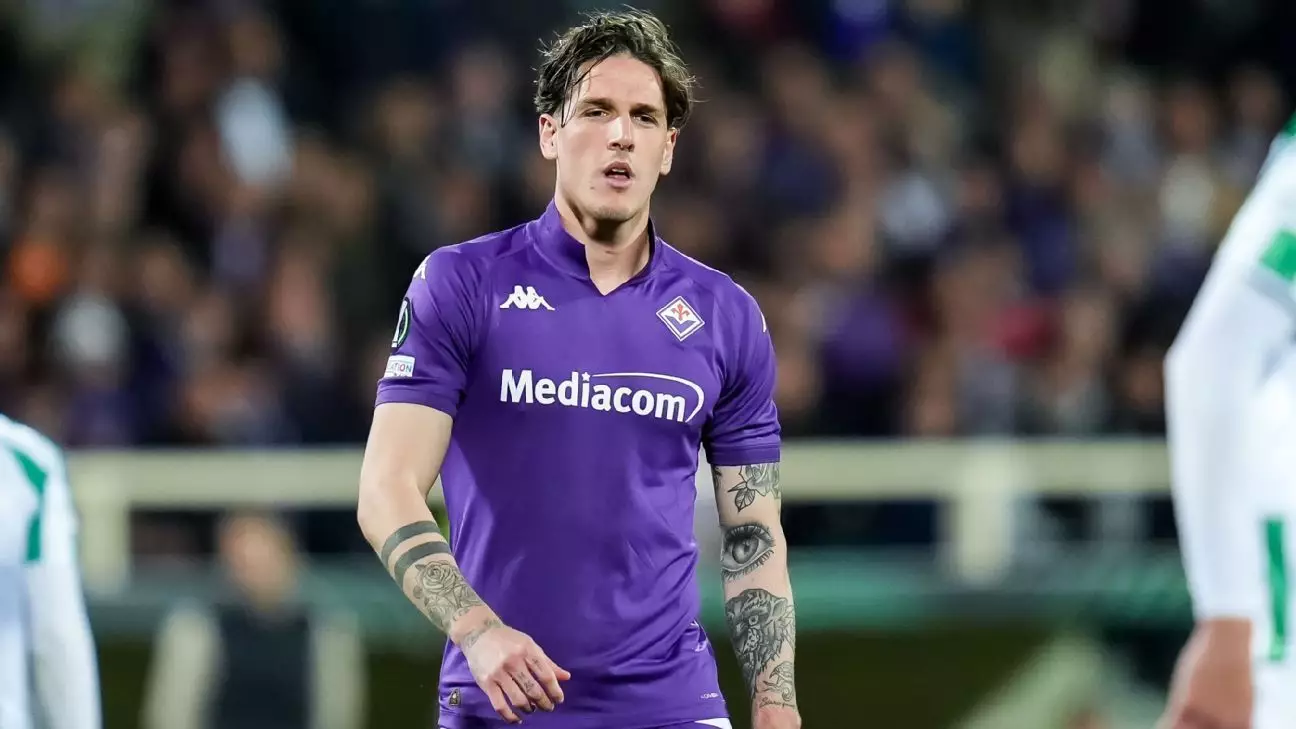In the realm of professional sports, an athlete’s character is scrutinized just as much as their performance. The recent incident involving Nicolò Zaniolo, the Fiorentina winger, has shed light on the ugly side of competitive sports where emotions can spiral out of control, leading to severe repercussions. Allegations of aggression and misconduct are never taken lightly in any sporting context, and in this case, AS Roma has accused Zaniolo of hospitalizing two youth players following a Primavera league match. These claims raise profound questions about the responsibilities of athletes both on and off the field.
This incident reportedly took place after Fiorentina triumphed over Roma in a critical match. The clash wasn’t just a typical game; it carried the weight of a playoff semi-final. For passionate players and fans alike, such stakes produce an emotionally charged atmosphere that can easily tip into chaos. The incident escalated quickly and turned from a celebration into allegations of “violent and unjustifiable behavior,” raising concerns about the underlying culture in professional sports.
The Nature of the Allegations
The accusations leveled against Zaniolo are shocking: allegedly entering the Roma locker room uninvited, behaving disruptively, and physically attacking two young players, one of whom had just undergone shoulder surgery. This isn’t just a matter of a sporting rivalry gone too far—it’s about the physical and psychological wellbeing of young athletes. The repercussions of such behavior extend beyond the immediate incident; they ripple through the affected players’ lives and careers, causing emotional distress and physical setbacks.
Roma’s response to the incident was swift, emphasizing their commitment to protecting their youth players. The club’s statements reflect a culture of accountability and support. By pushing for an investigation from the Italian soccer federation, Roma is not only defending its players but also standing against any actions that threaten the integrity of the sport. The player’s safety and the ethos of sportsmanship are paramount.
A Look at Zaniolo’s Career and Challenges
Zaniolo, once heralded as one of Italy’s brightest football prospects, now faces an uphill battle to reclaim his reputation and career. The player’s history is complex and punctuated with exhilarating potential mixed with disruptive incidents. Having made his international debut as a teenager and previously winning Serie A’s Young Player of the Year in 2019, Zaniolo’s talents are evident. However, injuries have cast long shadows over his journey, sidelining him and potentially derailing what many expected to be a glowing career.
Even as Zaniolo issued a public apology through social media, acknowledging his “lost temper,” it raises the question of whether personal accountability is enough in the face of such serious accusations. His claim that the events were “far removed from what has been reconstructed” suggests a disconnect between his reality and that of the witnesses. It paints a troubling picture of an athlete grappling with the pressures of fame and expectation.
The Broader Implications for Italian Football
This incident is not just a personal crisis for Zaniolo; it is a reflection of the broader issues within Italian football. The atmosphere of competitive youth sports can be intensely hostile, and stories of misconduct are symptoms of deeper problems within the culture of the sport. The Italian football community must grapple with how to foster respect, sportsmanship, and mental fortitude among players at every level.
This situation serves as a wake-up call for institutions involved in the development of young athletes. It highlights that the focus should not solely remain on athletic performance but also on character development. Training young talents goes beyond teaching them how to kick a ball; it includes teaching them how to handle their emotions, respect their opponents, and embody sportsmanship both on and off the pitch.
As the investigation unfolds and the implications of Zaniolo’s actions continue to reverberate, it is essential for stakeholders in the sporting world to engage in meaningful discourse about how athletes can navigate their pressures healthily and respectfully, shaping a future for Italian football defined by integrity and respect.

